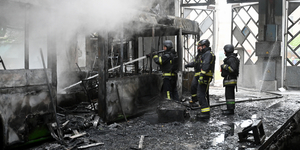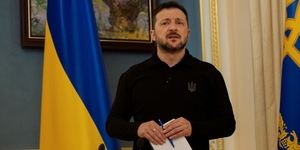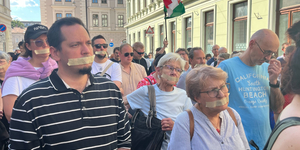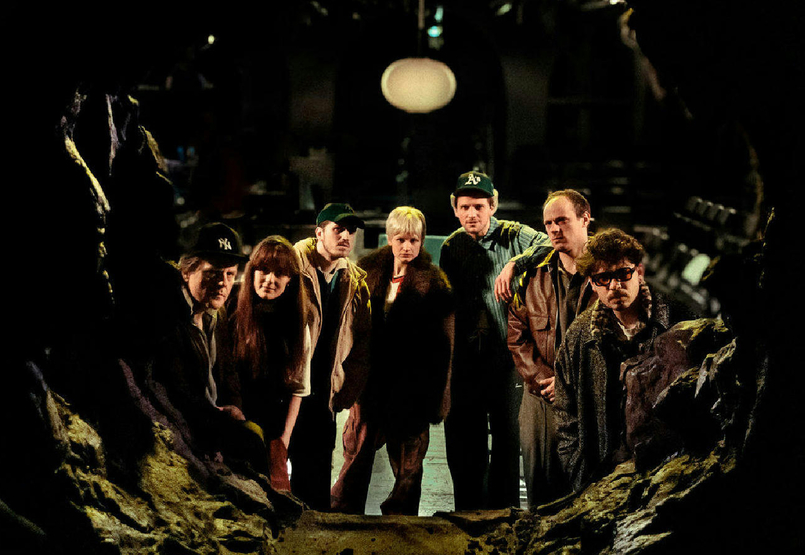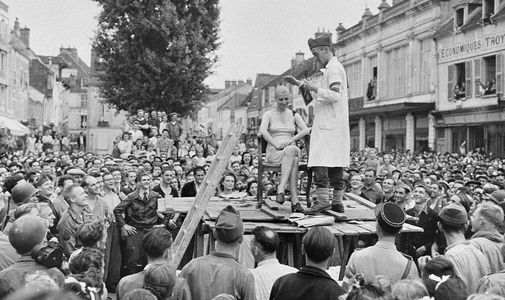It took only 2429 votes to make sure that the same four parties would remain in parliament after the elections. Had the Hungarian Democratic Forum (MDF) received 2429 fewer votes, and thus failed to get into parliament, then there would not even be a theoretical chance of a right-wing government replacing the current centre-left coalition. Even with the MDF, it seems an unlikely outcome. Iboly David, leader of the MDF and the Orban government's Minister of Justice, said on Monday that she did not wish to help her former boss back into power.
The narrowness of that 2429-vote margin is highlighted by the fact that Zoltan Juhasz, the MDF mayor of Nagykallo, who did best of all the party's candidates, received 6396 votes in his constituency on Sunday. This is more than twice what Ibolya David, the party's second most successful politician, won in her constituency in Tolna.
The first round gave the Socialists and their coalition partner a slight advantage, with the Socialists leading by slightly more than they managed four years ago. But whereas four years ago, the combined forces of Fidesz and the MDF were on more or less equal footing with the Socialists in terms of list votes, now Viktor Orban's party was on its own almost able to achieve a tie, while the now independent MDF got a further 5.04 per cent on top of that.
Together, the conservative parliamentary opposition won 47.16 per cent of the list vote, and the combined left-wing and liberal coalition 49.52 per cent. The coalition is also leading in terms of individual mandates, with 38 constitutuencies compared to the opposition's 28. Changes in political geography also show this: the Socialists managed to take too Southern Lowlands constituencies (Mako, Szentes) and one Eastern Hungarian constituency (Tiszaujvaros) from Fidesz.
Despite the left-wing's lead, Viktor Orban said on Sunday morning with typical vehemency: "We have a realistic chance of winning." The leader of the opposition argued that his party needed 75 of the 110 constituencies still up for grab in order for Fidesz to gain an absolute majority. But Fidesz's constituency chairmen took issue with Orban's analysis at a meeting on Monday in a Budapest hotel. HVG has learned that Lajos Kosa, the mayor of Debrecen, who won his constituency outright in the first round, told Orban that: "we have to reach an agreement with Ibolya David at any price." When it became clear that Orban did not intend to respond to this, Zsolt Nemeth, the former state secretary for foreign affairs, and Andras Deak, a candidate in Budapest's ninth district, lined up behind Kosa. Nemeth said Fidesz had to make an irresistible offer to the MDF. One participant at the meeting talked of huge tension throughout the meeting. Many even said that Viktor Orban himself could be sacrificed if it was necessary to reach agreement.
Orban is clearly counting on his party still having some reserves of voters. Former supporters of the orthodox communists were already lined up behind the Socialist Party by Sunday, but Fidesz can still hope to win the votes of the 119,000 people who voted for the Hungarian Truth and Life Party and the Movement for a Better Hungary. The opposition leader also hopes to pick up some provincial votes with some inclusive speeches.
The former prime minister is likely to hold rallies in agricultural towns like Gyula, Szeghalom, Oroshaza, Szerencs, Puspokladany, Haduboszormeny, Monor, Rackeve, Nyirbator, Baktaloranthaza and Dombovar, where the outcome still hangs in the balance. Orban is also likely to speak in county towns like Gyor, Szolnok, Eger, Nagykanizsa and Bekescsaba. HVG has calculated that in the 110 constituencies that remain in play, 20 to 25 are too close to call. This is the situation in Gyula, Mosonmagyarovar and Varpalota. A further 30 to 40 districts (including Dunaujvaros, Gyongyos, Tata and Salgotarjan) tend towards the government, and forty to fifty (Kecskemet, Mohacs, Satoraljaujhely, Hodmezovasarhely) lean towards the opposition. The Socialists' determination is shown by Ferenc Gyurcsany's decision to announce a rally the day after the vote, to be held at the same time as Fidesz's.
Thus, the Socialists have taken revenge after their embarrassing defeat at the European elections. Outside Budapest, they came first in 10 counties, compared to Fidesz's nine. So the millionaire left-wing prime minister has not been the walk-over Fidesz expected, given that just two years ago they were dreaming of winning a two-thirds parliamentary majority.
Certainly, when Gyurcsany came to power it was hard to predict that liberal voters would be prepared to turn away from the legendary, regime-changing Viktor Orban and embrace a man who had been a leader of the old regime's youth wing. Yet that happened on Sunday – in exchange for support for three Free Democrat politicians, the Free Democrats stood down their candidates in 55 places in favour of the Socialists.
The Free Democrats, far from falling out of parliament, as several pollsters had predicted, actually improved on their showing of four years ago. The Liberals did particularly well in the capital, where they received 125,000 list votes, up 20,000 from last time. The party's standing has improved outside Budapest as well, but it scored over 5 per cent in only five counties.
The MDF managed to make their way into parliament even though they were unable to find a candidate to stand in 14 out of the 176 constituencies. Ibolya David is the first MDF leader since 1994 to risk fighting the elections as an independent party. The MDF scored above 5 per cent in 10 counties and in Budapest, even beating the Free Democrats in 11 counties.
ENDRE BABUS

